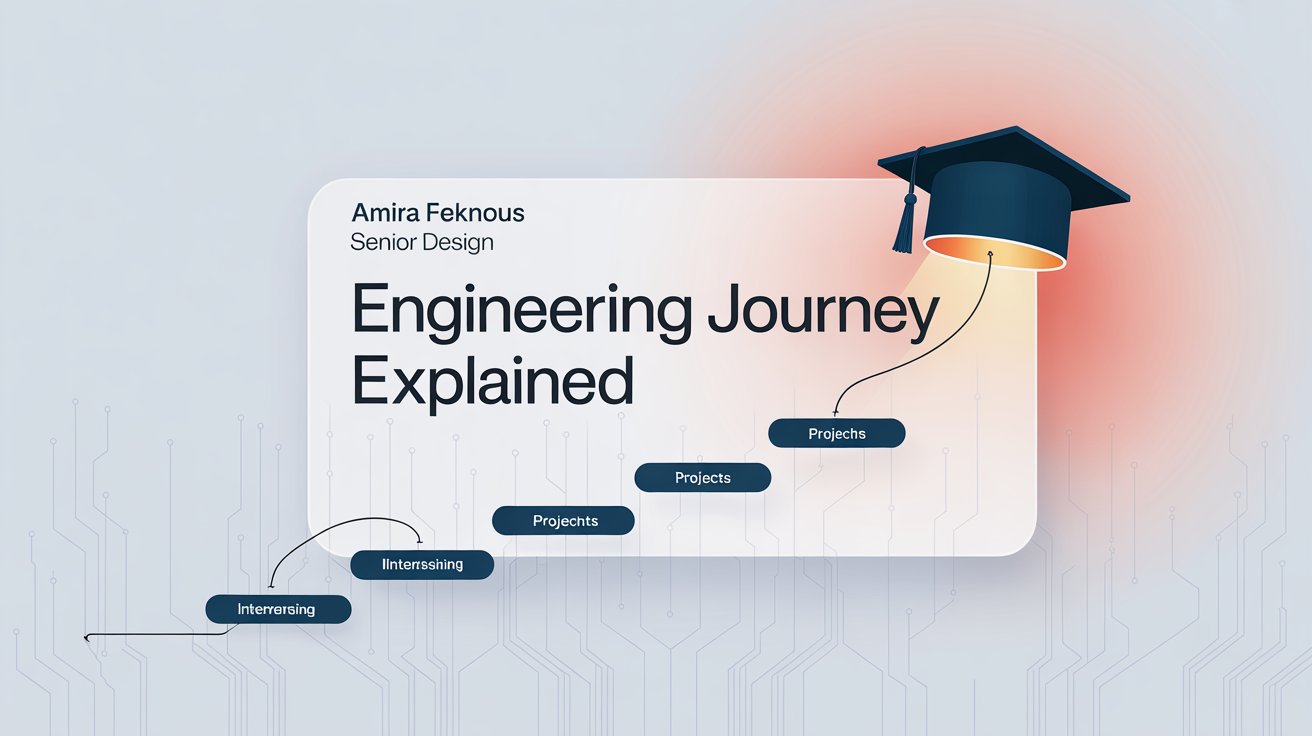Amira Feknous graduated from the Electrical and Computer Engineering (ECE) department at NJIT with an esteemed Senior Design project.
Her team’s project—titled Sherlock Holes: An Automated Pothole Detection System—was selected as the Best in Engineering Design across all disciplines at NJIT (LinkedIn, engineering.njit.edu). She also won the prestigious Saul K. Fenster Innovation in Engineering in Design Award, given to outstanding senior design work in 2019 (engineering.njit.edu). Beyond school, she has gone https://www.tanzohubs.com/kaantah-a-grammatical-journey-into-the-unknown/ on to work as an Engineer with SES Satellites (previously Strategic Teleport Partners), and has represented engineering excellence on panels including IEEE events (Nxtbook Media).
This article explores Amira’s Senior Design project, the impact it achieved, and how it helped launch her early career in engineering.
About Amira Feknous & Her Engineering Background
Amira earned a degree in Electrical and Computer Engineering from NJIT, where she demonstrated innovation and leadership in design. She received recognition as the top student in her department, with academic and project awards from NJIT’s Newark College of Engineering (engineering.njit.edu). After graduation, she began her engineering career at SES Satellites (formerly Strategic Teleport Partners), contributing technical expertise to global satellite operations (Nxtbook Media). She has also participated in forums advocating for women in engineering.
Overview of the Senior Design Project: Sherlock Holes
Amira’s Senior Design topic was “Sherlock Holes: An Automated Pothole Detection System.” This system aimed to help cities and transportation agencies detect road damage using sensors or computer vision during routine drives (LinkedIn).
Key Elements:
- Sensors and Cameras: Mounted on vehicles to collect data continuously.
- Machine Learning Algorithms: Analyze collected data to identify and classify potholes.
- Alerts & Reporting: Generated a real-time dashboard or map to show locations of detected road damage.
The system offers cost-efficient, scalable monitoring without requiring dedicated inspection teams.
Awards & Recognition
1. Best Engineering Design Project at NJIT
Her team’s work was declared the overall winner among all senior design disciplines at NJIT (LinkedIn).
2. Saul K. Fenster Innovation in Engineering in Design Award (2019)
This campus-wide award honors innovation in senior design; Amira was the ECE department winner (engineering.njit.edu).
Both honors underscore the technical quality and innovation of her project.
Benefits & Real-World Impact
- Public Safety: Faster identification of hazardous road conditions could reduce accidents.
- Cost Efficiency: Automates inspection to reduce manual labor and resources.
- Fleet Integration: Can be deployed on vehicles already in service—garbage trucks, buses, delivery vans.
- Scalability: Easy to expand to different cities or regions with minimal added infrastructure.
Amira’s Career Progression
After graduation, Amira joined SES Satellites as an engineer. She continues to share her expertise through technical events and mentoring. She also served on IEEE panels encouraging more women to enter the engineering field (Nxtbook Media). Her trajectory demonstrates how strong academic work opens doors into high-tech industries.
Skills Developed in the Project
- Hardware Design: Working with sensors, microcontrollers, data capture tools
- Software Development & AI: Implementing detection algorithms and data processing
- Team Collaboration: Leading a cross-functional student team from concept through final demo
- Presentation Skills: Delivering polished presentations to judges, faculty, and industry https://en.wikipedia.org/wiki/Industry guests
- Innovation & Problem Solving: Combining existing tools into a fresh and useful transportation solution
Frequently Asked Questions (FAQs)
1. Who is Amira Feknous?
Amira Feknous is an NJIT electrical engineering graduate who led a top-ranked senior design project and now works in satellite engineering (LinkedIn).
2. What was her senior design project?
Her project, “Sherlock Holes,” developed an automated pothole detection system using sensors and machine learning (LinkedIn).
3. What awards did she receive?
She won NJIT’s Best Engineering Design Project and the Saul K. Fenster Innovation in Engineering in Design Award in 2019 (engineering.njit.edu).
4. Where does she work now?
She works as an engineer at SES Satellites (formerly Strategic Teleport Partners) handling satellite technology and networking (Nxtbook Media).
5. How does the pothole detection system work?
Vehicles collect sensor and camera data while driving. AI models process the data in real time to detect potholes and map them for road management teams .
6. What is the significance of the Fenster award?
The award is given to the most innovative senior design work across NJIT’s Newark College of Engineering (engineering.njit.edu).
7. How does her work inspire others?
Amira serves on women-in-engineering panels and shows how to bridge academic projects to impactful engineering roles .
8. Can the system be used in real cities?
Yes. It’s designed to be fitted to existing fleet vehicles, allowing cities to deploy monitoring without extra infrastructure.
9. What skills did she develop?
Amira gained expertise in hardware design, software algorithms, project management, teamwork, and public communication.
10. Where can I find more about her achievements?
LinkedIn profiles and NJIT press releases highlight her awards, projects, and professional engagements .
Conclusion
Amira Feknous has demonstrated engineering excellence through her award-winning senior design on automated pothole detection.
Her project showed both technical innovation and real-world relevance, earning top university honors and industry recognition. Transitioning smoothly into a satellite engineering role, she now contributes to global https://www.tanzohubs.com/boiler-steelvirgamet-com/ technical projects and supports young engineers through mentorship. Her career path showcases how meaningful senior design work can be a springboard into impactful roles. Young engineering students can learn from her example: identify problems, build creative solutions, and share results boldly.
Amira’s journey is a testament to how dedication and smart design can shape both engineering futures and communities.










